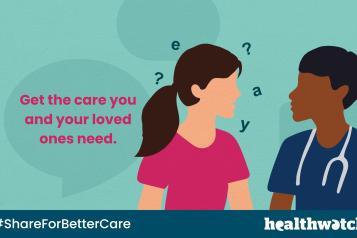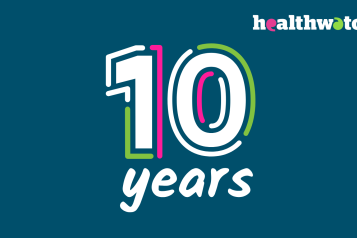People are increasingly avoiding NHS appointments and prescriptions due to cost of living, Healthwatch England warns

• The number of people avoiding an NHS appointment because they can’t afford travel almost doubled between October and December as the cost of living crisis is forcing many to change how they use health and care services.
• More than a third (39%) of people say the changes they have made to their lives due to the cost-of-living crisis have affected their mental health.
• Women are disproportionately affected by spiralling costs, with 35% saying their mental health has got worse over the last two months, compared to 26% of men.
• Healthwatch England says the increase in people avoiding vital care is worrying and calls for urgent action from the government.
With spiralling costs of living, we have warned people are making changes to how they use health and social care services, which can have an adverse impact on their health and wellbeing.
The impact the cost-of-living crisis is having on many people’s ability to heat their homes and eat well has been widely reported. However, new data suggests people are increasingly avoiding prescriptions, out-of-pocket costs for carers and booking/attending NHS appointments.
The patient champion conducted a tracker poll with 2,000 adults in England between October and December to assess the impact of the cost of living on their health and wellbeing and whether it has affected how they use health and social care services.
It found that more people avoided getting prescription medicines, and booking NHS appointments including dental treatment, due to the fear of extra costs, in December than in October.
The number of people who avoided an NHS appointment due to the cost of travel doubled to almost one in 10, 11%, in December, from 6% in October.
The findings echo many of those in a report issued by Healthwatch in West Yorkshire last September.
More than one in 10 can't afford costs associated with an NHS appointment
The poll found that in December:
• More than one in seven, 15%, of respondents avoided going to a dentist because of the cost of checks-ups or treatment, an increase of 3% since October;
• Nearly 11% of respondents have made tough decisions to change, cut down on or stop support from paid carers, 4% higher than October;
• More than one in 10 (11%) have avoided booking an NHS appointment because they couldn’t afford the associated costs, such as accessing the internet or the cost of a phone call; up from 4% in October;
• One in 10, 10%, avoided buying over the counter medication they normally rely on, up 3% from October;
• And one in 10, 10%, of people have also avoided taking up one or more NHS prescriptions because of the cost, which is 4% higher.
Changes made have had effects on mental health
More than a third of the respondents, 39%, said that the changes they have made to keep up with the rising cost of living have negatively affected their mental health, while 35% said their physical health had got worse in the last two months.
The findings also suggest women are disproportionally affected by spiralling costs compared with men and more have taken action to cut back on:
• heating, which 42% of women have not turned on when they usually would, compared with 33% of men;
• food, which 27% of women say they have bought less of, because of the increased cost, compared with 20% of men; and
• energy costs in general, with 33% of women saying they have turned off or avoided using essential appliances to save energy costs, compared with 25% of men.
'Serious implications for physical and mental health'
Louise Ansari, National Director of Healthwatch England, said: “It is clear that the impact of the cost-of-living crisis on people’s health and wellbeing is beginning to hit home.
We are very worried that people are increasingly avoiding getting prescription medicines, booking NHS appointments and travelling to their appointments because of the extra costs. The steps people are taking to cope with the cost of living can have serious implications on their physical and mental health. This is likely to place a further burden on the already stretched NHS.
“The cost of living should never be a barrier to healthcare. The increase in the number of people avoiding vital care needs urgent joint action from the government and health and care services.
“Steps such as offering over-the-counter medication on prescription based on ability to pay, raising awareness of travel reimbursement schemes and patient transport services and ensuring people who need them take up social tariffs for phone and broadband could all make a huge difference for people who are struggling financially.”
Sarah Sweeney, Interim Chief Executive of National Voices, said: “People living with ill health and disability are much more likely than others to be pulled into poverty because of the cost of living crisis. Healthwatch England’s research echoes with insights we hear from our members – that many people are being forced to make impossible decisions between heating, eating, medications and keeping medical devices running.
"We support Healthwatch England’s recommendations and urge the government and health and care services to ensure people with ill health can stay afloat during these challenging times.”
Healthwatch England set out immediate actions the government working with health and care services can take to support people in the cost-of-living crisis and save money:
Prescriptions:
- GPs should offer people over the counter medications on prescription where they consider patients’ ability to pay is affected by significant social vulnerability; (although this has always been an option, NHS policy since 2018 has discouraged this to save money, but this approach should be reconsidered in the context of cost of living challenges);
- Primary care staff should make sure patients on lots of medication, as well as repeat or long-term prescriptions, are aware of the annual prescription option.
Travel:
- NHS services should ensure people are aware of access to patient transport services or travel reimbursement schemes
- NHS trusts should follow current car parking guidance and actively promote the offer of free parking for Blue Badge holders, people who attend hospitals at least three times a month and parents of sick children staying overnight.
- NHS England should support NHS trusts to further consider reducing the costs of parking charges and provide concessions to visitors and carers of people who are gravely ill or have extended stays in hospital.
Dental care:
- NHS dentists should follow NICE guidance to offer dental check-ups based on patient’s individual risk factors. This will help free up NHS slots for more people who currently can’t find an NHS dentist and are forced to go private.
Remote bookings and appointments:
- NHS England should work with OfCom and telecommunications companies to ensure that hospital and GP phone numbers are part of a freephone service, so cost is never a barrier to phoning a health service.
Benefits
- The Institute for Fiscal Studies has estimated that even with inflation uprating, working-age benefits will be 6% below pre-pandemic levels in real terms next year. The government should ensure benefits, including Statutory Sick Pay (SSP), keep pace with inflation in real terms, and senior health leaders should advocate for the importance of this to ensure that cost is never a barrier to managing health.
- The government should consider extending the amount of time statutory sick pay can be paid to people who can’t work. It should take into account the impact that longer waiting lists for elective care will have on some people’s ability to work, and ensuring these people aren’t left without pay despite contributing throughout their lives to the NHS through taxation.
-
We have previously recommended the Department of Health and Social Care and NHS England should commission a national helpline to improve access to health and care benefits, including Statutory Sick Pay, Universal Credit, Employment and Support Allowance (ESA), Healthcare Travel Costs Scheme, Carer’s Allowance, and Personal Independence Payments (PIP). Health and care workers could signpost people to this helpline when someone mentions concerns about costs. Signposting can also be done proactively, with NHS teams using data from across integrated care systems to target, for example, people with caring responsibilities to ensure they are aware of the benefits they are entitled to.
These online surveys of adults in England (nationally representative) were commissioned by Healthwatch England and conducted by market research company OnePoll, in accordance with the Market Research Society's code of conduct. Data was collected between 19 to 25 October 2022 and between 5 and 9 December for Wave 1 and Wave 2, respectively. All participants are opted in to take part in research and are paid an amount depending on the length and complexity of the survey. This survey was overseen and edited by the OnePoll research team, who are members of the MRS and have corporate membership to ESOMAR.
Downloads
To find out more about our findings you can download the full briefing below.
If you require this in a different format please email enquiries@healthwatch.co.uk or call 03000 68 300


